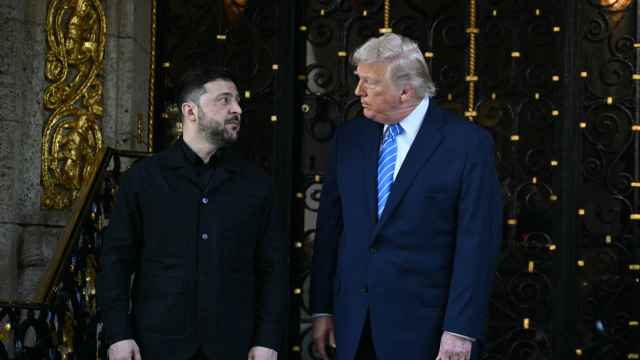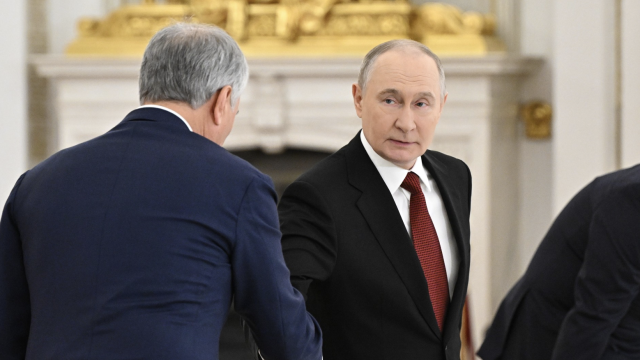Prosecutors are looking into the possible misuse of state funds after hundreds of pine trees planted around an infamous "dancing bridge" in Volgograd died soon after planting because they had no roots.
The city contracted two local companies, Stroimarket and Stimul, to plant the trees around the bridge in 2009, the Prosecutor General's Office said Tuesday.
But most of the trees died soon after the companies received the payment of 5.6 million rubles ($200,000) because "all the saplings were seriously damaged at the time of planting," the prosecutor's office said on its web site.
A check found that the pines literally had no roots, Volgograd district prosecutor Alexander Rasstrygin told Komsomolskaya Pravda.
He did not explain why officials waited until 2011 to open a case, but said the suspects face fraud charges, which could land them in prison for up to five years.
The seven-kilometer bridge across the Volga River became a nationwide phenomenon soon after its opening last year when videos hit the Internet showing it wobble up and down about one meter, sending cars bouncing.
The Audit Chamber reported last July that 152 million rubles ($5.4 million) of state money was used "improperly" during the 13-year construction of the bridge. Several other inquiries followed, but no officials or constructors have been charged with wrongdoing. The bridge remains open to traffic.
A Message from The Moscow Times:
Dear readers,
We are facing unprecedented challenges. Russia's Prosecutor General's Office has designated The Moscow Times as an "undesirable" organization, criminalizing our work and putting our staff at risk of prosecution. This follows our earlier unjust labeling as a "foreign agent."
These actions are direct attempts to silence independent journalism in Russia. The authorities claim our work "discredits the decisions of the Russian leadership." We see things differently: we strive to provide accurate, unbiased reporting on Russia.
We, the journalists of The Moscow Times, refuse to be silenced. But to continue our work, we need your help.
Your support, no matter how small, makes a world of difference. If you can, please support us monthly starting from just $2. It's quick to set up, and every contribution makes a significant impact.
By supporting The Moscow Times, you're defending open, independent journalism in the face of repression. Thank you for standing with us.
Remind me later.





